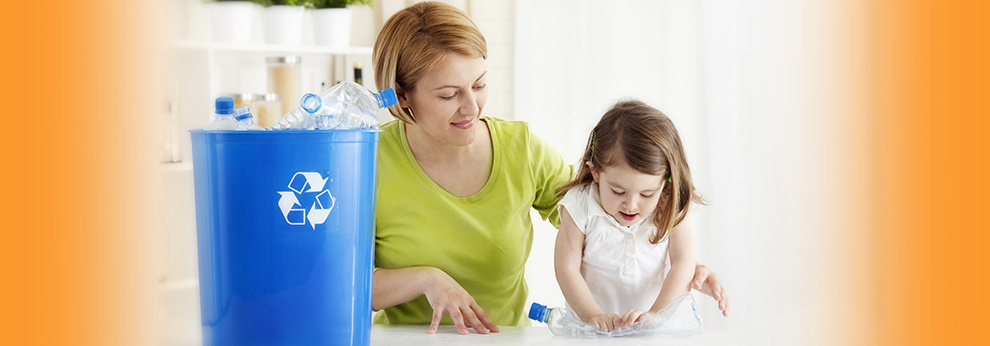What Steps to Follow if Trash Collection Fails
Posted on 29/08/2025
What Steps to Follow if Trash Collection Fails
Are you frustrated because trash collection failed in your neighborhood this week? Don't let overflowing bins and piling waste disrupt your routine! Missed or delayed garbage pickups can cause inconvenience, create sanitation risks, and even lead to fines if not addressed. In this comprehensive guide, we'll explain what to do if garbage collection is missed, how to resolve issues with your waste disposal service, and steps to prevent future trash pickup problems.
Why Trash Collection Matters
Regular trash removal is essential for maintaining a healthy, clean, and pleasant environment around your home or business. Reliable garbage pickup reduces health hazards by preventing the spread of pests and disease, decreases odors, and keeps your community tidy.
- Public health and safety: Consistent garbage removal helps prevent outbreaks of illnesses spread by rodents or insects.
- Environmental impact: Uncollected waste pollutes soil and water, and wind-blown trash harms local wildlife.
- Community reputation: Clean neighborhoods are more attractive and property values remain higher.

Common Reasons for Missed Trash Collection
Sometimes, missed trash collection isn't anyone's fault. Understanding the causes can make it easier to find solutions:
- Holiday schedules can shift regular pickup days.
- Bad weather (snowstorms, heavy rain, hurricanes) might delay trucks.
- Blocked access such as parked cars or construction may keep crews from reaching your bins.
- Overflowing or improper bins that are too full, contain prohibited items, or are not placed curbside correctly.
- Staff shortages or equipment breakdowns at the trash collection company.
- Route changes or administrative errors by the waste management provider.
Immediate Steps to Take When Trash Collection Fails
If you've noticed that your garbage pickup was missed, don't panic! There are several actions you can take to address the issue promptly:
1. Double-Check Garbage Pickup Schedules
Before jumping to conclusions, confirm whether your regular trash collection schedule was changed due to events like holidays or weather emergencies. Most municipalities update their pickup calendars online or send out notifications.
- Visit your city or county waste management website.
- Look for posted alerts, news flyers, or social media updates from your garbage disposal provider.
- Compare your current bin placement and contents with accepted guidelines to ensure compliance.
2. Inspect Your Bin and Collection Area
Make sure your garbage bin was properly prepared for pickup:
- Was the trash bin curbside by the designated time?
- Did you use the right bin for your household waste, recyclables, and yard debris?
- Is your bin overfilled or packed with non-accepted materials? This could cause collection crews to skip your address.
- Was access to the bin blocked? (By cars, snow, bulky items, etc.)
3. Ask Your Neighbors
Sometimes, garbage collection failures affect entire streets or neighborhoods. Check with neighbors to see if they also experienced a missed pickup. If others are impacted, the likelihood of a widespread issue is higher, and you may be able to coordinate reporting the problem together.
4. Report Missed Collection to the Proper Authority
If none of the obvious reasons above apply, it's time to report the missed trash collection. Here's how:
- Locate the customer service line for your local waste management service or municipal sanitation department.
- Many communities offer online forms or mobile apps for reporting garbage pickup issues - use these for faster resolution.
- Include specific details: your address, type of waste (trash, recycling, yard waste), scheduled pickup day, and a clear description of the problem.
- Take photos if your bin was appropriately prepared but not serviced; this can serve as supporting evidence.
- Ask for confirmation and an expected timeline for resolution or follow-up.
5. Secure Your Trash Until Pickup Resumes
While you wait for the issue to be resolved, it's important to properly store your waste:
- Keep waste bins tightly lidded to deter animals and reduce odors.
- If possible, store bins in a garage, shed, or away from direct sunlight to minimize attractants.
- Avoid placing additional garbage bags next to full bins, as this can lead to messes and neighborhood complaints.
What Not to Do When Trash Collection Fails
It's tempting to look for quick fixes when garbage pickup fails, but avoid these common mistakes:
- Don't illegally dump trash in vacant lots, parks, or other people's bins.
- Don't burn waste - this is illegal in most places and highly dangerous for health and safety.
- Don't overload bins with extra garbage - many haulers will not service overfilled bins, or may refuse in the future.
Frequently Asked Questions about Missed Trash Collection
Can I get a refund if my garbage collection is missed?
Policies differ by city and waste management provider. Some may offer account credits or refunds for repeated missed pickups. Ask your hauler about their missed service compensation policy.
How soon will my trash be collected after I report a miss?
This depends on staffing, equipment, and the nature of the issue. Expect resolutions in 24-72 hours for most residential cases. Holidays and severe weather may cause longer delays.
What if missed trash pickup happens frequently?
Persistent trash collection failures should be escalated:
- Contact a supervisor or manager at the waste management company.
- Request written records of your complaints and responses.
- If unresolved, notify your local government or city council.
- Document every missed pickup with dates, times, and photos if possible.
- Work with neighbors to address chronic issues collectively.
Long-Term Solutions to Prevent Future Garbage Collection Failures
A one-off missed pickup is frustrating; recurring issues demand proactive solutions. Here's how to prevent future missed trash collections:
- Use Reliable Bins: Ensure your garbage and recycling containers are in good condition, properly labeled, and meet local regulations for size and material.
- Follow Local Regulations: Keep up-to-date with local rules, including acceptable waste types, proper bagging, and recycling protocols.
- Proper Curb Placement: Place bins a few feet apart, away from obstacles, and with handles facing the correct direction.
- Prevent Overloading: Schedule bulky item pickups or visit local drop-off centers for unforeseen large amounts of waste.
- Sign Up for Service Alerts: Register for email or text notifications from your sanitation department or hauler.
- Build a Relationship: Establish rapport with your waste collection workers - they may offer advice or notice issues before they escalate.
Alternative Waste Disposal Options When Collection Fails
If regular garbage pickup isn't available and you can't wait for the next round, consider these alternative strategies:
- Municipal Drop-Off Centers: Many cities provide transfer stations or "dump days" for direct disposal of household trash and recyclables.
- Temporary Dumpster Rental: For extended disruptions (especially after storms or events), renting a small dumpster can help manage overflow.
- Community Clean-Up Events: Some neighborhoods organize special trash days to handle missed pickups; check your local bulletin boards or online groups.
- Composting: For organic waste, composting is a great way to reduce garbage volume and create nutrient-rich soil for gardens.
Environmental and Health Risks of Uncollected Trash
Uncollected garbage isn't just a visual nuisance; it poses serious risks:
- Attracts vermin and insects, increasing the likelihood of disease.
- Creates foul odors that affect indoor and outdoor living spaces.
- Risks fines and community violations in municipalities with strict waste codes.
- Contributes to pollution and degrades local ecosystems.
Dealing quickly with missed waste collection protects your health and the environment.
How Local Authorities Handle Trash Collection Complaints
Most municipalities establish clear processes for residents to report failed garbage collection. Here's an overview:
- Phone hotlines and online portals streamline report tracking and follow-ups.
- Waste collection supervisors review photographic or written evidence.
- Contractor penalties or fines may apply for repeated failures to collect trash under local laws.
- Escalation procedures ensure that chronic or widespread problems are addressed at higher administrative levels.
Always keep records of your reports and responses for reference if needed.

Conclusion: Stay Proactive with Missed Trash Collection
A missed garbage pickup is inconvenient but manageable. By following these steps, you'll resolve trash collection failures quickly and keep your property clean and safe. Whether the disruption is due to a simple mistake or an ongoing issue, knowing how to report garbage service interruptions, secure your waste, and work with local authorities empowers you to be part of the solution.
Strong communication and attention to detail are your best tools in keeping your neighborhood free of unsightly and hazardous waste. Bookmark this page as your go-to resource whenever you encounter trash collection problems, and share it with others who might benefit!
Summary Checklist: Steps to Follow if Trash Collection Fails
- Verify garbage collection schedule and guidelines.
- Check curb placement, bin condition, and access.
- Consult neighbors to identify if the issue is widespread.
- Report the missed pickup with full details and photos.
- Secure your waste to deter pests and odors.
- Explore alternative disposal options if needed.
- Monitor and follow up with waste management or city officials.
- Practice good waste management habits to reduce future risks.
If you found this guide useful, share it on social media and help your community stay clean and compliant no matter how often trash collection fails.



